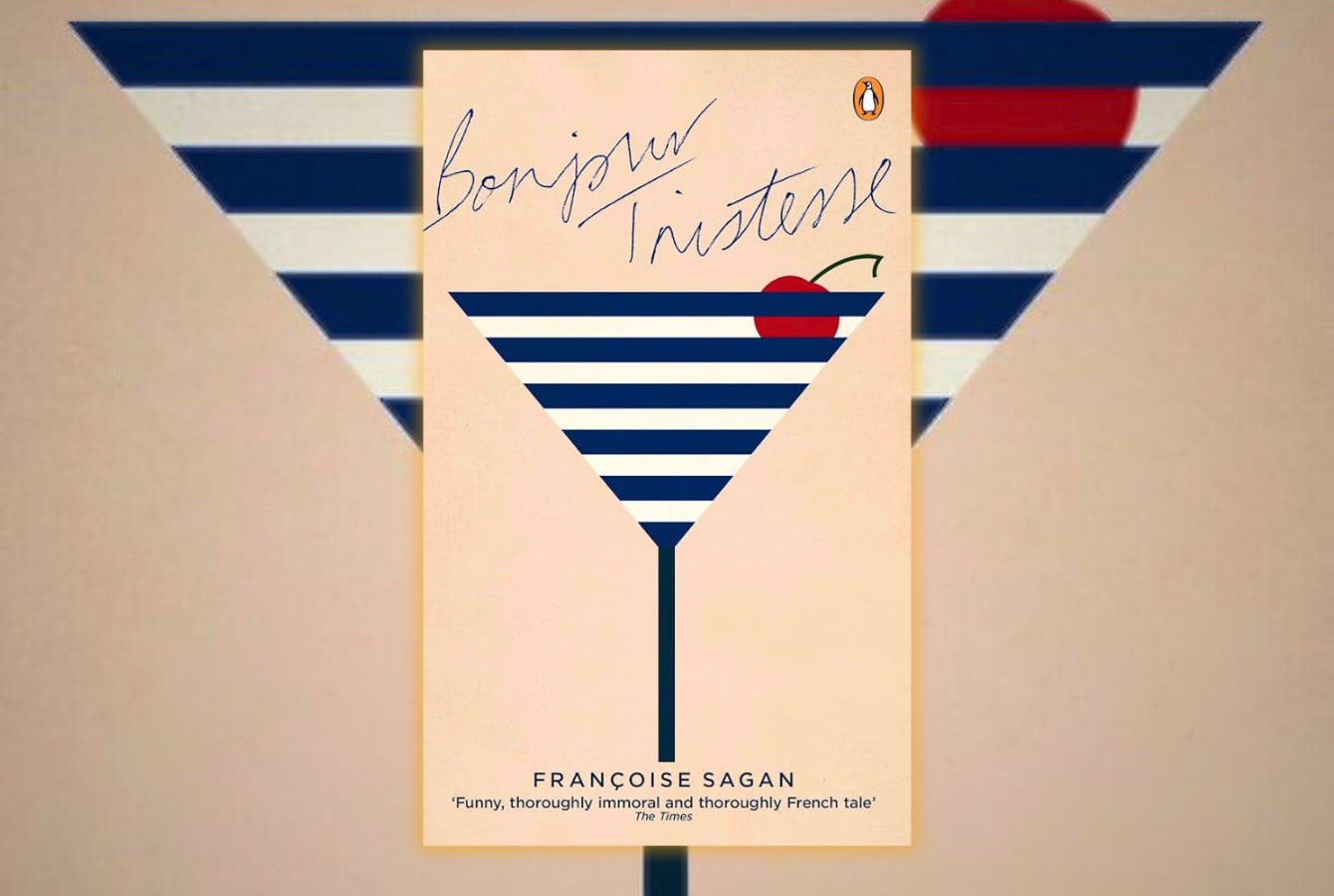"Bonjour Tristesse": A Moral Chess Board
On Françoise Sagan's novel "Bonjour Tristesse", and how moral failings either break your ethics or fracture your identity.
Bonjour Tristesse, Françoise Sagan (1954)
There’s a moment in Françoise Sagan’s first novel, Bonjour Tristesse, in which seventeen-year-old Cécile discovers how life fractures a person, forcing them to remake the broken halves into something like a whole. “For the first time in my life,” she says, “this ‘self’ of mine seemed to divide in two and I was quite astonished to discover such a duality within me.” Not incidentally, this observation comes in the second part of this short novel; the structure of the book reflects the structural division within its central character.
Bonjour Tristesse is the story of young Cécile and her sybaritic father, Raymond, who spend a summer at a beach house. Raymond exercises for vanity, and Cécile avoids her studies, languorously reflecting that the sand pouring through her fingers is “trickling away like time, and that it [is] facile to think like that and that it [is] pleasant having facile thoughts.” Their lazy hedonism is interrupted by the arrival o…





